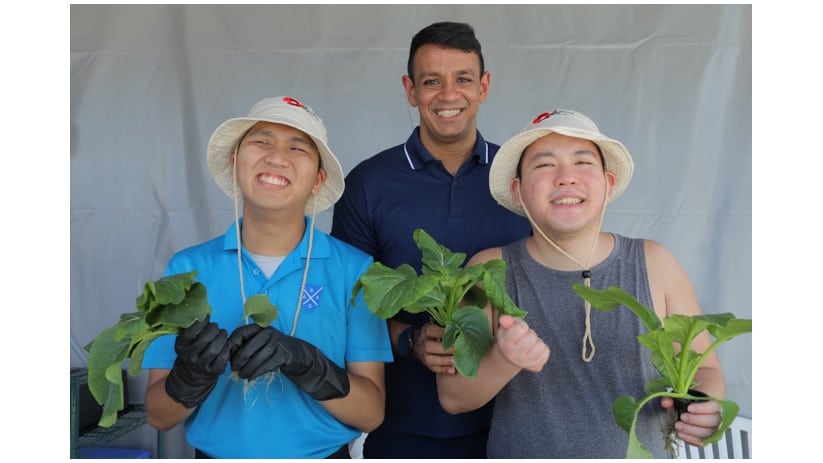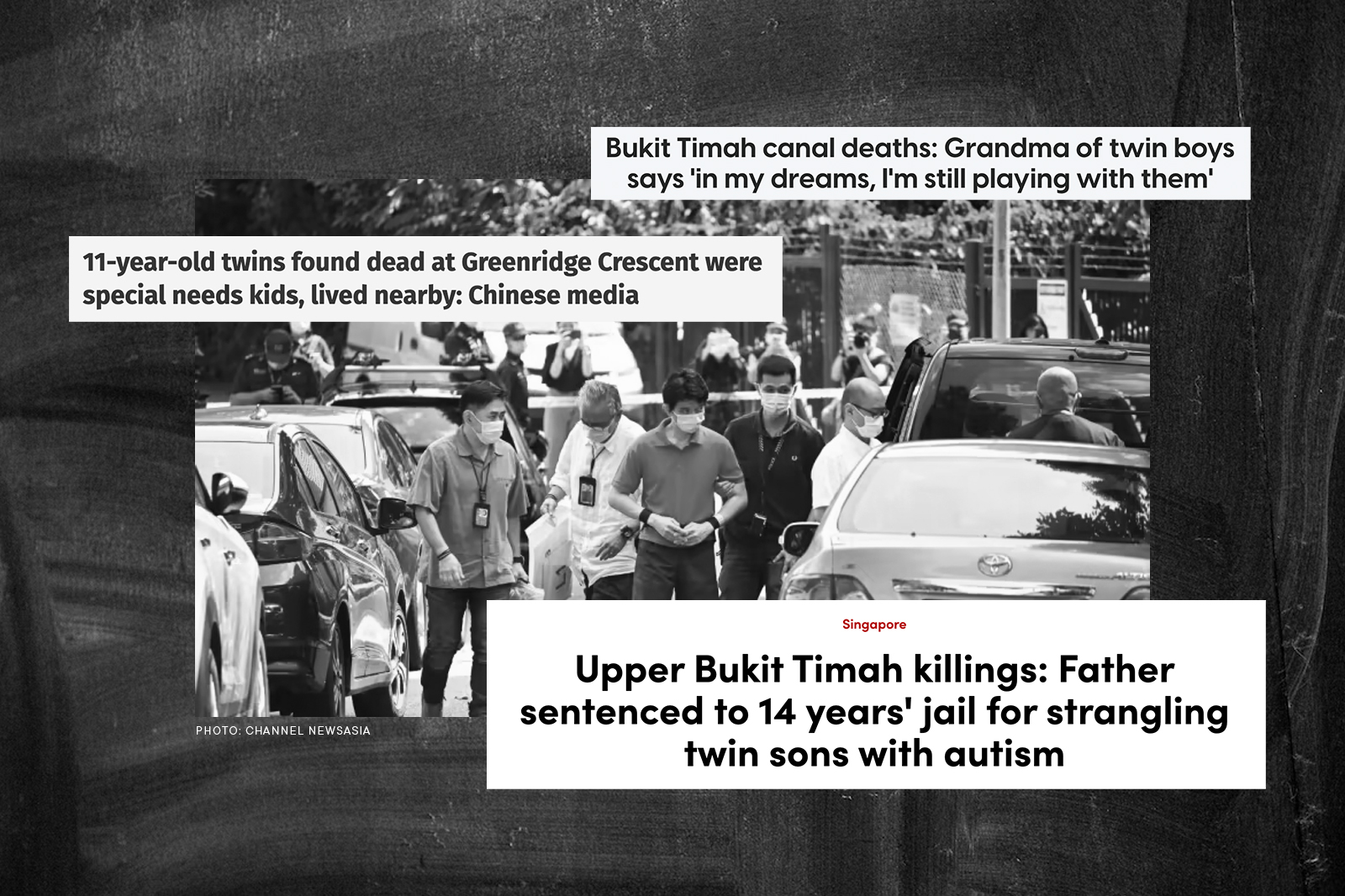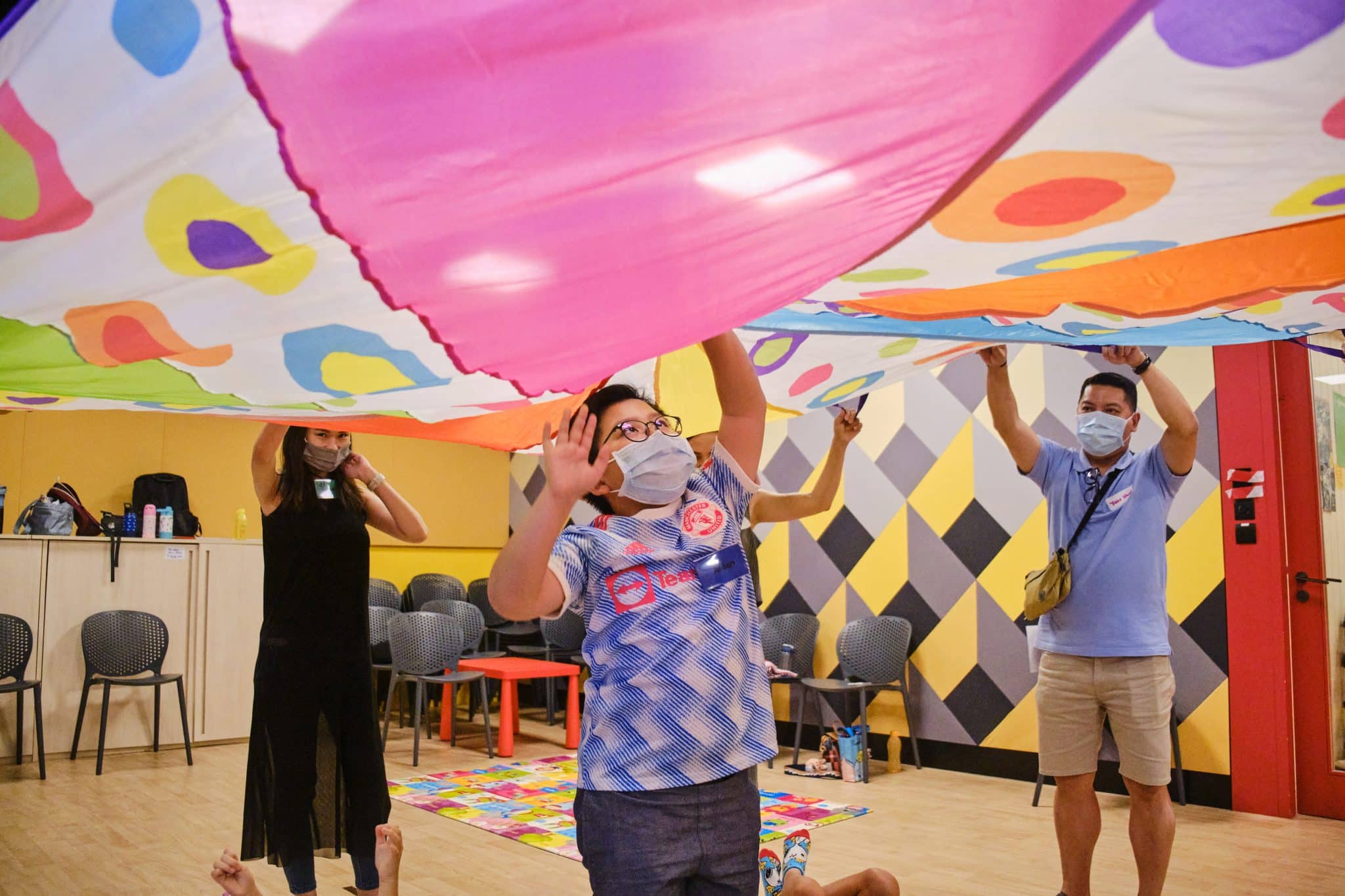Helping children with special needs find their place in the world
During Autism Awareness Month this April, Salt&Light recognises all who journey with children with special needs.
Jasmine Goh for Our Daily Bread Ministries // April 6, 2022, 10:15 pm

“If we’re always counting the cost of ministering to (people with special needs), we’d never be able to meet their needs,” said Bernard Chew. “The more I’m involved in this work, the more I feel that it’s a work of compassion.” All photos courtesy of Bernard Chew.
When Bernard Chew was planning to move his family to the United States to do his master’s degree, one of the first things he did was to look for early intervention programmes for children with developmental needs.
His son, Evan, 3, had just been diagnosed with autism, and Bernard wanted to make sure that his son would be able to get access to the right services while there. “I researched the place, planned where Evan was going to get educated, and where he could get early intervention,” he recalls.
But it appeared that the preparation was for naught. One day, Bernard received a rejection letter from the university he was hoping to go to. “All my efforts in planning had gone to waste,” he says.
Excited, he told his wife: “Maybe God has a plan.”
Since he had to attend another university elsewhere in the US, Bernard went to the library to start his research all over again. Picking up a travel guide on the US, he flipped to the section on Nashville, the city they were going to. The first sentence caught his attention: “Nashville is the Christian capital of the US.”
Excited, he told his wife: “Maybe God has a plan.”
When the family arrived in Nashville about a year later, in 2008, Evan had turned four, and Bernard’s younger daughter, Chloe, two. Looking for a church, Bernard and his wife scanned the local newspapers for listings, and found one that seemed suitable. It had a service in the late morning, and was near their hotel.
“On the way there, we prayed earnestly that the Sunday school teachers would accept Evan and be able to work with him,” he recalls.
Arriving at the church, they made their way to the Sunday school apprehensively. Approaching the teacher, they said: “Our son has autism, and we don’t know if he will be well-behaved. Here’s our phone number – if at any time you can’t manage him, please give us a call.”
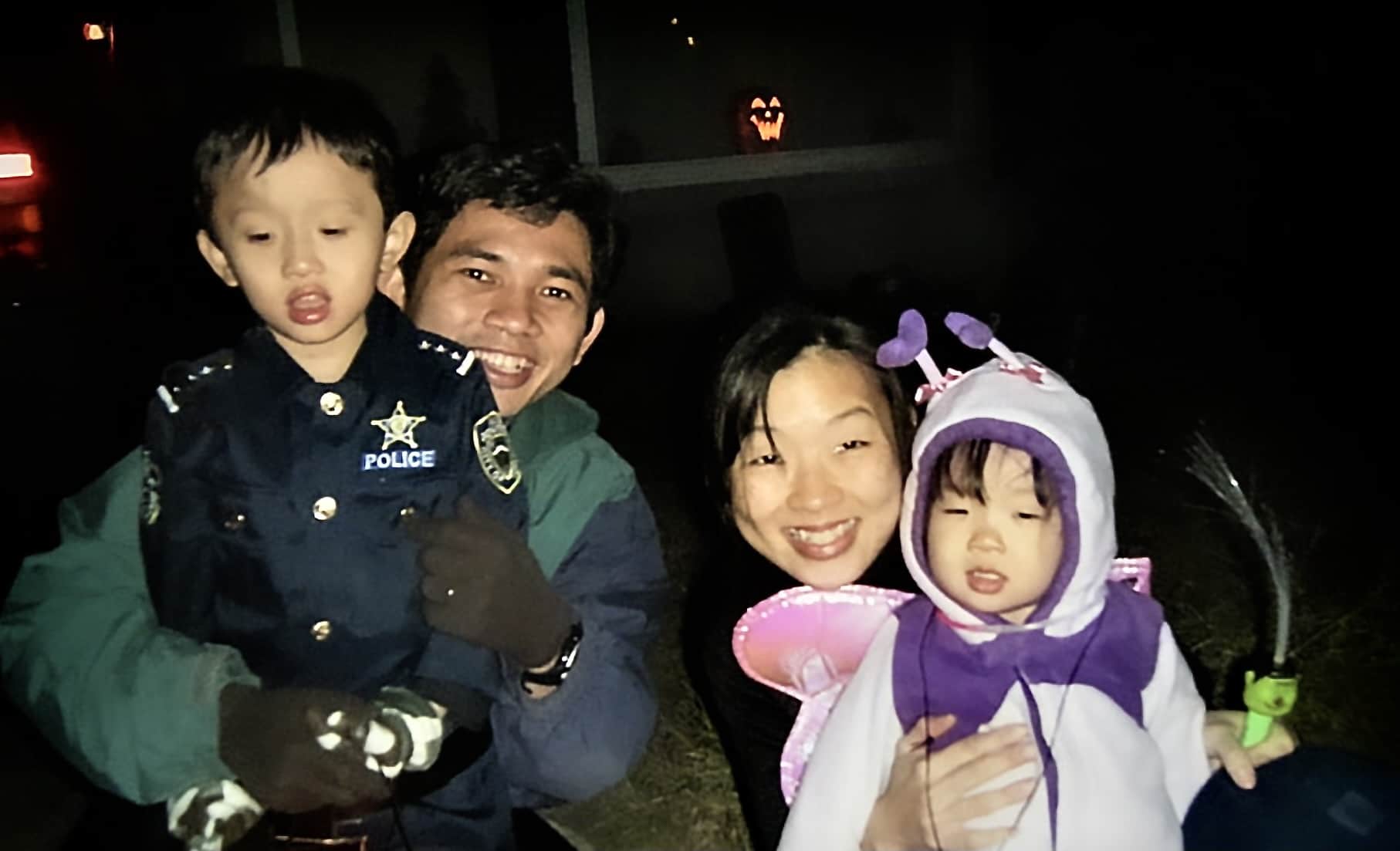
The Chews in Nashville, US, when Evan and Chloe were young.
It was a line they had used often, and they were used to a variety of reactions. But that day, the teacher looked at them, smiled, and said: “Don’t worry, I’m special needs trained.”
For Bernard and his wife, it was one of the strongest reminders of God’s faithfulness in their parenting journey. It was also the first of many lessons they would learn about the place of special needs children in God’s kingdom, church and society.
A certain place in God’s kingdom
Today, the Chews are back in Singapore, and they have learnt much about raising Evan, now 17.
One thing Bernard is sure about is his son’s place in God’s kingdom.
“The process of discipling Evan is more about modelling our faith, rather than teaching.”
Though Evan, who also has intellectual disability, may not understand much of the sermons he hears in church, his parents try to explain the basic foundations of the Christian faith to him.
They teach him that there is a God who loves him, and that he can have a personal relationship with Him. Bernard explains that they try to keep it simple: “The process of discipling Evan is more about modelling our faith, rather than teaching.”
He adds: “Even if he’s not cognitively able to understand what it means to receive Jesus as Saviour and Lord, I believe we have a compassionate God who will see to it that his eternal place is secured.”
Evan’s place in society, however, is another matter.
An uncertain place in society
Bernard worries about Evan’s future. His greatest fear is that, when he and his wife are no longer around, his son may one day be placed in a mental health institution.
“For most of us, we don’t dream of our child being employed,” Bernard says of parents of children with severe disabilities. “We just hope he gets the basics – a roof over his head, food on the table and a few people he can call friends.”
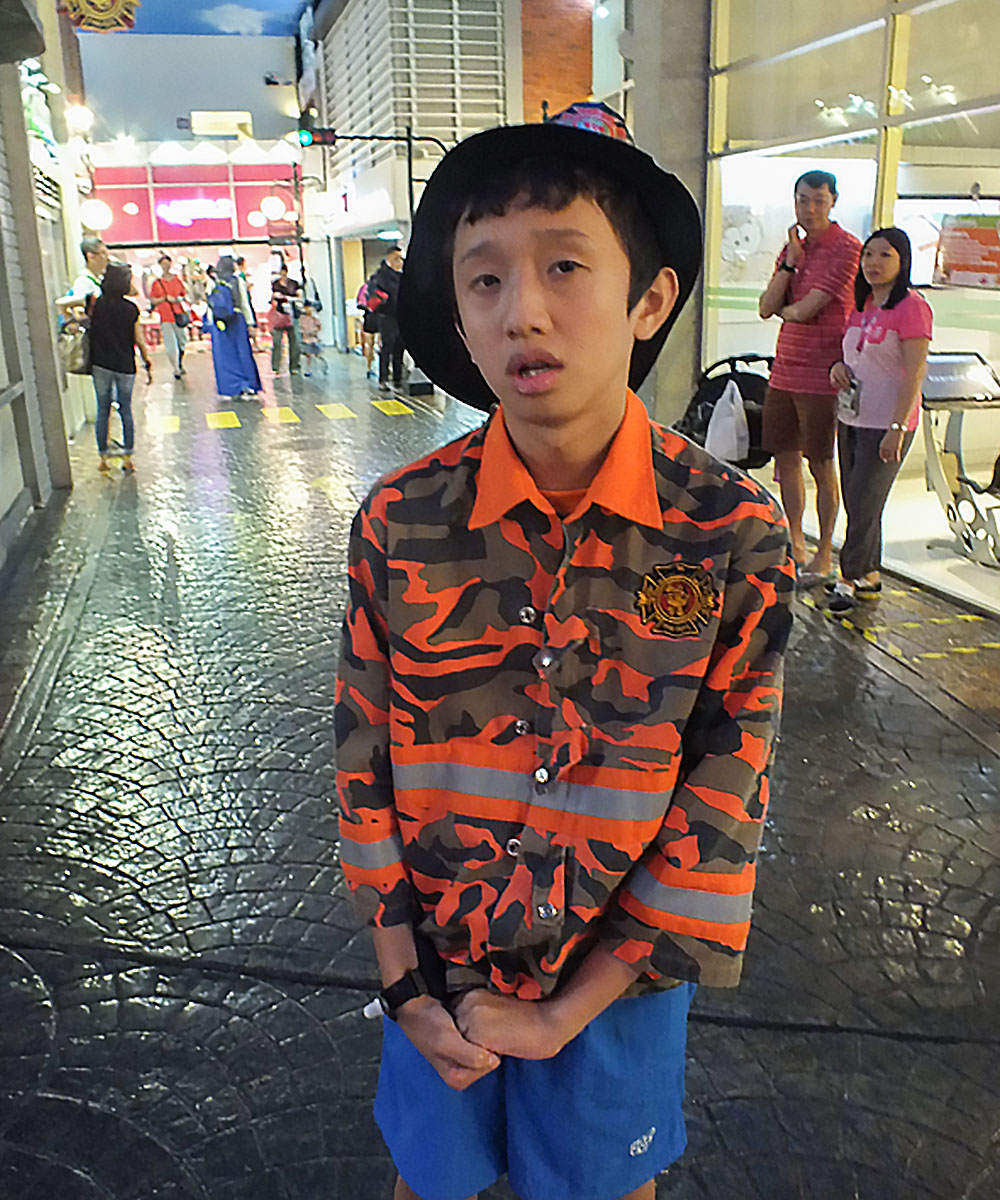
Evan on a family holiday.
Because of his own experience in the social service sector, Bernard, who is now the CEO of St Andrew’s Autism Centre, is well aware of the limited options for people with intellectual disabilities.
His greatest fear is that his son may one day be placed in a mental health institution.
Those with milder forms of intellectual disability who can live independently with minimal supervision can stay in hostel-style residences, and attend sheltered workshops or even work during the day.
But those who need constant care and attention may need to be placed in adult disability homes when their parents or caregivers are no longer around or able to care for them.
These homes, however, may not be adequately staffed because of limited funding. If adults with more complex needs find that these homes are unable to take care of their needs, they may then end up in psychiatric care settings for the long term.
This is something Bernard is hoping to avoid for his son.
A place in the Church?
As a parent to an autistic child and the leader of an autism centre, Bernard is always grappling with this question: What place do people with moderate to severe disabilities have in society?
This is worrying, as people with special needs may not have the very things that they need to survive in society – independent living skills, employability and productivity.
“The greater challenge to my faith is when the lack of acceptance comes from the church.”
This is where, Bernard believes, the church can be different.
He points to Luke 14:12–14, which calls Christians to give a place at the table to those who are disabled or disadvantaged: “Then Jesus said to his host … ‘When you give a banquet, invite the poor, the crippled, the lame, the blind, and you will be blessed. Although they cannot repay you, you will be repaid at the resurrection of the righteous.'”
Bernard sees Jesus’ instruction as a call to churches to welcome and accept adults and children with special needs into the community.
“It’s challenging when I feel that society doesn’t understand my son or my daughter,” he says of Evan and Chloe, now 15, who has dyslexia and struggles with anxiety issues. “But the greater challenge to my faith is when the lack of acceptance comes from the church.”
But, he adds, when this happens, he reminds himself that the church is not perfect, and that “we are all sinners saved by grace”. “God is the only one who loves perfectly. Even we, as parents, don’t love our children perfectly,” he says with a laugh.

Chloe trying on a dentist’s uniform at Kidzania.
Bernard will always remember stepping into a church that welcomed those with special needs.
“The first time I attended its service, I was floored,” he recalls. “During the service, people with moderate-to-severe autism were jumping around, even on stage. And no one batted an eyelid!”
More poignantly, Bernard remembers thinking to himself: “Wow, this is what the Church is meant to be.”
How a church can be inclusive
When a church is inclusive, says Bernard, it can benefit everyone – not only the ones with special needs – by showing God’s love in a very real way.
“Making the faith real to those we disciple is not just about ‘downloading’ knowledge,” he notes. “It’s about obeying what Jesus calls us to do, in response to His saving grace.”
He adds: “We are called to go out and love. Unless we love others, the younger generation will not see our faith as real.”
For example, he says, churches can make Sunday school and youth ministry more inclusive to children and youth with disabilities and special needs. “When we teach kids and teenagers to include people who are different from them, we’re teaching them to love as Jesus did,” he says.
Bernard suggests letting children with less severe special needs join the usual Sunday school classes. These could include kids with Attention Deficit Hyperactive Disorder (ADHD) who have trouble sitting still, or those with dyslexia who find reading Bible passages aloud extremely difficult and stressful.
“When we teach kids to include people who are different from them, we’re teaching them to love as Jesus did.”
In such cases, parents and teachers could show other children what it means to be understanding and to accept these kids with challenges.
Or, a church could choose to include children with more severe needs, such as those with severe physical disabilities or those with moderate-to-severe autism, who might be more prone to anxiety and meltdowns.
In such cases, the church could make some accommodations in its services and Sunday school classes so that these children can attend them.
While this can be more troublesome or costly, Bernard believes it’s worth it.
“If we’re always counting the cost of ministering to them, we’d never be able to meet their needs,” he says. “The more I’m involved in this work, the more I feel that it’s a work of compassion.”
The more severe the challenges posed by disability, the more likely the person with disability will not be able to express their gratitude in an explicit way, he says, much less repay those who help them. “If we have an eternal perspective, we will love and learn to love the most difficult person.”
Being inclusive is a blessing
In Luke 14:14, Jesus promises that those who welcome the disabled will be “blessed” and “repaid at the resurrection of the righteous”. Taking heart from this promise, Bernard believes that those who allow the disabled into their lives will find themselves ministered by the interactions and encounters.
“I’m a lot more attuned to the suffering of others, and this has helped me better minister to others.”
He has learnt patience, empathy, and compassion from his children, and others with special needs. “I’m a lot more attuned to the suffering of others, and this has helped me better minister to others,” he says.
His own son has shown him how to look at life with new, unjaded eyes. “When a worship song that Evan is familiar with comes on, he’s all smiles. Being non-verbal, he can’t sing along, but he hums along to the tune,“ he says. “Their childlike expression of the joy of the Lord is one of their gifts to us.”
He adds: “If we can see the gift that children with special needs can also give to the church, we would see the place of these people quite differently.”
A certain hope for parents
Bernard knows full well that helping special needs children find their place in the world cannot be done by their parents alone; it takes effort by the church, community, and society, and cannot be forced.
“There is a special place in God’s kingdom for those with special needs … I’m both comforted and encouraged by that thought.”
“Maybe this world isn’t the place for them; maybe it’s really about the world to come,” Bernard muses. “The day I can play soccer with Evan, it won’t be on this side of heaven.”
Focusing on God’s kingdom not only gives him a biblical perspective of life on earth, but also gives parents like him hope to keep going.
“There is a special place in God’s kingdom for those with special needs, particularly those of a greater degree of severity,” he says. “I’m both comforted and encouraged by that thought.”
This article was first published in Biblical Wisdom for Parents © Our Daily Bread Ministries and is republished with permission. For more articles like this, visit biblical-parenting.org.
MORE ON INCLUDING CHILDREN WITH SPECAL NEEDS:
How do Sunday Schools meaningfully include children with special needs?
How do we enable differently abled persons to be full participants in the community of faith?
Understanding their grief: 5 ways to support parents of children with special needs
We are an independent, non-profit organisation that relies on the generosity of our readers, such as yourself, to continue serving the kingdom. Every dollar donated goes directly back into our editorial coverage.
Would you consider partnering with us in our kingdom work by supporting us financially, either as a one-off donation, or a recurring pledge?
Support Salt&Light
